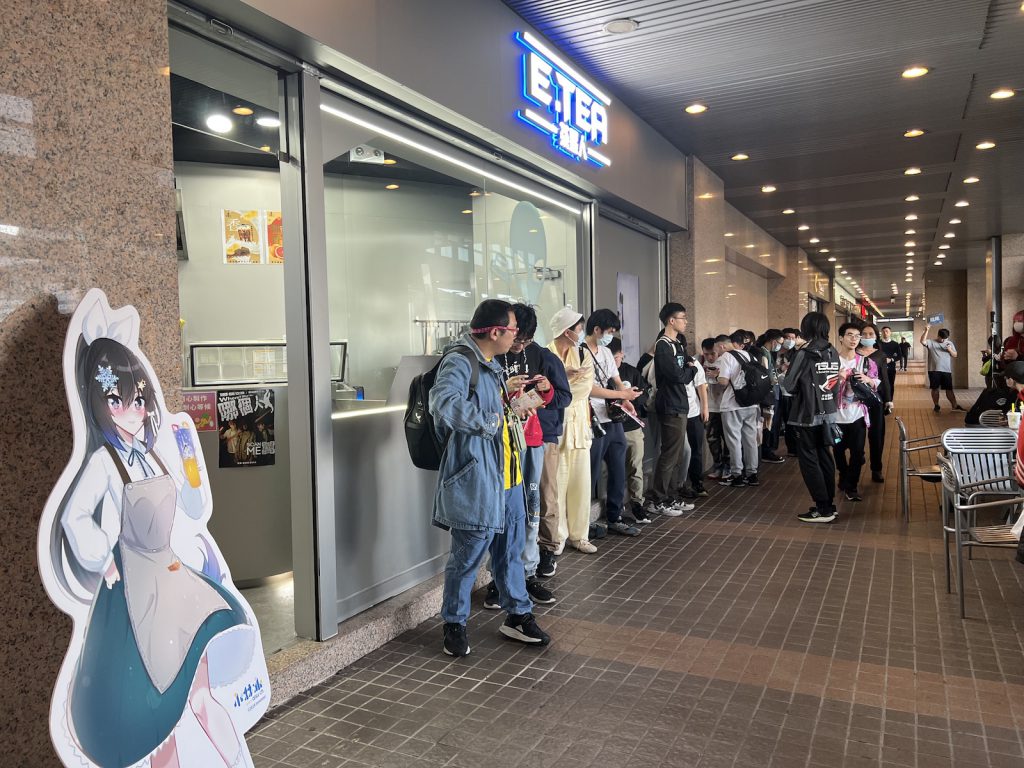Hong Kong’s virtual YouTuber industry is limited by a small domestic market.
By Alexa Lau
Local Virtual YouTuber Kobayashi Aisu streams in Cantonese despite the saturated and small market in Hong Kong.
“The audience only watches you when they understand the language you speak and relate to the topics you cover. That’s why I ended up streaming entirely in Cantonese,” she says.
Also known as VTubers, Virtual YouTubers are YouTubers who interact with the audience via virtual avatars instead of appearing on camera as a real person.
“Having a virtual persona is a protective means to me. I can bravely share some unconventional or controversial thoughts such as comments regarding sensitive issues without having to worry about being bashed,” Aisu says.

Bullying and the recently introduced waste charging scheme in Hong Kong are topics Aisu has covered.
With over 16,900 subscribers on YouTube, she also enjoys reading and reacting to her fans’ anonymous texts and picture submissions about topics like first love and baffling experiences at work.
“It is all about the emotional connections I have with my fans,” Aisu says, noting that some of her audience are anime and manga fans who may find it difficult to communicate with others face to face.
When she first established her channel in 2020, Aisu tried streaming in both Japanese and Cantonese, but she now mainly uses Cantonese because it helps increase her relatability and build a closer bonding with her viewers.
“There are more common topics to talk about with fans when I speak their language, such as recent social issues and local trends. It helps connect me with my fans,” she says, adding that most of her fans are Cantonese speakers who find her content relatable.

Despite how VTubers from overseas generally have a higher subscriber count, such as Gawr Gura from Hololive Production English who has over 4,450,000 subscribers, Aisu says that she prefers collaborating with local YouTubers rather than with overseas content creators.
“A main reason that fans watch their favourite VTubers is the language that they speak, for example English or Japanese, so collaborating with overseas VTubers once or twice won’t bring in more viewers that don’t really watch Hong Kong VTubers,” Aisu points out, also noting that the small market for local VTubers cannot be expanded this way.
When she first started her channel three years ago, Aisu developed her virtual avatar with her friends. She is now working under innoneer.TV, the only company managing VTubers in Hong Kong.
Seeing that corporate VTubers overseas achieve high levels of popularity, Kairos Huang Xijun, one of three co-founders of innoneer.TV, founded the company with his team in February 2023 to jump on the trend and promote VTuber culture in Hong Kong.
“We want to use VTubers as a medium to produce different content since it is popular in other parts of the world. We want to explore the opportunities that VTubers bring to the table and see if we can reach the level of other countries like Japan,” Huang says.

However, the VTubing industry in Hong Kong is still in its infancy. The 25-year-old points out that this is why their management structure is smaller and simpler than other entertainment companies.
“The local VTubing industry is a mess. We need a complete business model. Without one that we can follow, there won’t be new investment and in turn we cannot increase the commercial value of the industry,” Huang says.
Adding that the audience for VTubers is already saturated in Hong Kong, Huang thinks the size of the audience for local VTubers will not increase significantly in the near future. He suggests gradually easing more Hong Kongers into having higher acceptance towards VTubers in order to popularise local VTubers.
“What we could do now is to share VTubers and their content to those who have no idea what VTubers are but have interest in Japan’s anime and manga culture, so that we can increase Hong Kong people’s acceptance towards VTubers,” he says.
“This will also expand the entire VTubing circle in Hong Kong,” he adds.
Professor Anthony Fung Ying-him from the School of Journalism and Communication at the Chinese University of Hong Kong points out the scale of the local VTubing circle is too small to even establish a business model.
“The market is too small. There isn’t any bargaining power for Hong Kong VTubers due to the lack of opportunities,” he says.
Fung points out that local VTubers are also lacking important components such as a dedicated platform for content creation to attract new audiences.
“The platforms they are using now aren’t from Hong Kong and can’t be tailored to fit local cultures. Unlike other places such as Mainland China, where they have Bilibili, or Japan where they have a wide variety of platforms just for VTubers,” Fung says.
Fung also believes the limited size of the Cantonese speaking market makes it difficult for local VTubers to gain a higher level of popularity worldwide.
“Language barrier is a big factor in the size of the audience. Even if this problem is solved, it is also hard for local VTubers to find interesting and relatable topics,” he says.
Edited by Liam Hordijk
Sub-edited by Sunnie Wu







































